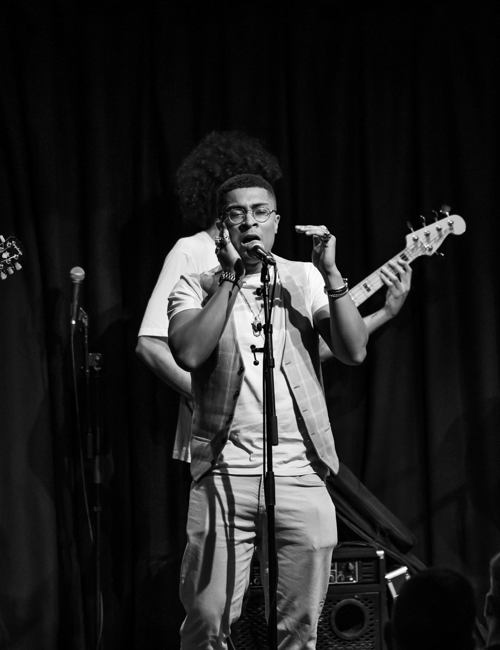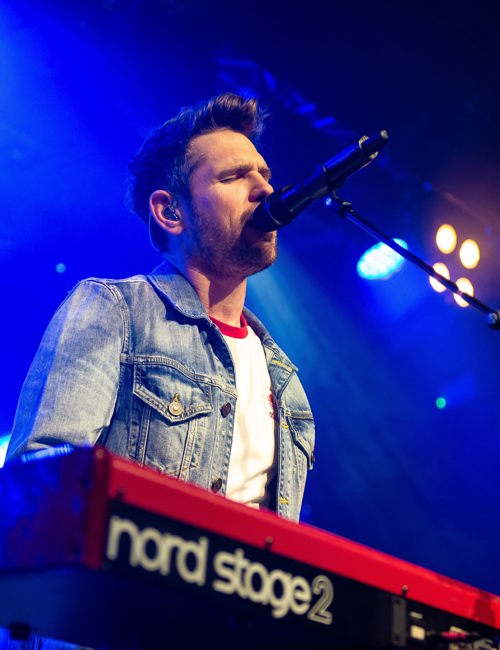For over twenty years, Nottingham-born musician Stuart Staples has worked with French director Claire Denis, creating a wide range of provocative and romantic film scores to arthouse staples such as Trouble Every Day and Bastards. We catch up with Stuart about his work on her new release, their collaborative process and the influence of film on his creative output…

So, your first film with Claire Denis was 1996’s Nénette and Boni. How did you guys first meet and work together on this film?
Claire simply came into our dressing room during the writing process of Nénette and Boni. She was listening to our second album a lot and wanted to ask if she could use one of our songs in the film. We said we should just do the whole thing, so that was basically how it started. We just got on at that moment. We were young, I suppose scoring films was sort of like a dream, and we just carried on from there.
What is the process you guys have when scoring a film? Do you go from the script, a full edit or just a simple conversation?
I think that every film has its own story, we don’t really have a set way of working. For Nénette and Boni, we waited for a finished edit and as a band we were able to react to it, using these reactions to decorate it in some way. We wanted our music to bring out the sense of fun and freedom we felt from the film. Although, being very young, it was quite a hard process doing that, it was in the days of VHS so we had to constantly keep rewinding this old tape which wasn’t easy. It does vary, though. For example, with Stars at Noon, Claire needed certain scenes to shoot to. That is a film that had been on Claire’s mind for a long time, so we have had many conversations about it, and I was able to get that song in shape for the shooting in Panama. I think doing that gave the film’s dance scene a real kind of completeness, they are actually dancing to the emotion and rhythm of the song.
With your collaborations, there is a large variety of genres. Trouble Every Day has a beautiful orchestral score whereas Bastards has a very harsh synth one. How do you decide what genres to explore per film?
Mostly it is down to what the film sparks within you. For Stars at Noon I just started by saying to myself that the score had to be really rhythmic, which led to us adding lots of solo drums into it. It’s a very urgent film so we really wanted to reflect that through the music, and see how these ideas would transform when the sound met the images. With Bastards, the storyline is very tough, so I had to position myself in this unsure space the characters were in, which ultimately formed some incredibly unrelenting music. Every film has asked us as a group of people to go somewhere which we aren’t used to going musically, and I think that has fed back into our own music. That has ultimately been a big part of why we are still together after about thirty years, because we are always pushing ourselves to do new things.
Every film has asked us as a group of people to go somewhere which we aren’t used to going musically, and I think that has fed back into our own music
Trouble Every Day is one of my all time favourite film scores. Could you speak a bit about the process of crafting that incredibly haunting music?
That film was really a gift for any film composer. When Claire spoke to us she talked about how she was interested in kissing and why lovers want to bite each other. I remember she used such romantic language to describe it. That sparked this very passionate song, with a very lamenting score. When it came together with the images, which are very brutal at times, it created this collision which was more than the sum of its parts. Shortly after we did that score, our first lineup of the band came to an end and I was speaking to Claire about The Intruder, I had some ideas but I told Claire I didn’t really know how to score films. She just replied, “I don’t really know how to make films,” so from that moment on there was a freedom between us.
Do you find writing film scores that are mostly instrumental more difficult than music that is mostly sung, or spoken over?
When exploring an idea that’s come from primarily the inside of you, you are really starting from just a grain of sand. When you are presented with something that moves you, by somebody you believe in, you are using what you have inside you and connecting it with somebody else's vision. If you take the singing out of a Tindersticks album, there is just as much attention to the detail of the instrumentation as you would find in our film scores. There is a point where they become the same. Lots of people find it easy to understand I’m a singer, but I’m really just a guy who sits in studios - my voice is just a part of that.
Music and films really shine when the creators refuse to play by the rules
Outside of working with Claire, have films played a big role in your life?
When I first met the band in the eighties, we all had a shared love of music but we also had our own things. One member was heavily into soundtracks and he opened that door for me, as it was such a big part of his thinking. Although I think when you come across something - be it film, literature or art - that speaks to you, it is impossible to not be changed by it. So films have definitely had an effect on me. I don’t have a whole lot of time to watch new things, but when I do it can really stop me in my tracks. Recently I have been thinking about the films I watched in the early nineties, such as Bad Lieutenant, which floored me even more than when it was first released. I can say the same about Crash, too, it has gained even more of a power over me now.
Have any film scores stayed with you and had a lasting influence?
There are so many, but one example is the score to Midnight Cowboy, which I’ve never been able to shake off. Another recent one is Uncut Gems, which was a really great piece of work. I think when there is trust between a composer and a director, some great things can happen. It’s the things that go sideways and feel unrestrained that really connect with me.
I’ve been listening to the Tangerine Dream scores a lot recently, mostly the Thief one.
That’s a great one, an amazing film too. So is the score to Friedkin’s Sorcerer. I think they work so well because they aren’t made based on the film’s locations, they feel otherworldly when they meet the images. Honestly, music and films really shine when the creators refuse to play by the rules, the Tangerine Dream soundtracks are a perfect example of that.
We have a favour to ask
LeftLion is Nottingham’s meeting point for information about what’s going on in our city, from the established organisations to the grassroots. We want to keep what we do free to all to access, but increasingly we are relying on revenue from our readers to continue. Can you spare a few quid each month to support us?




